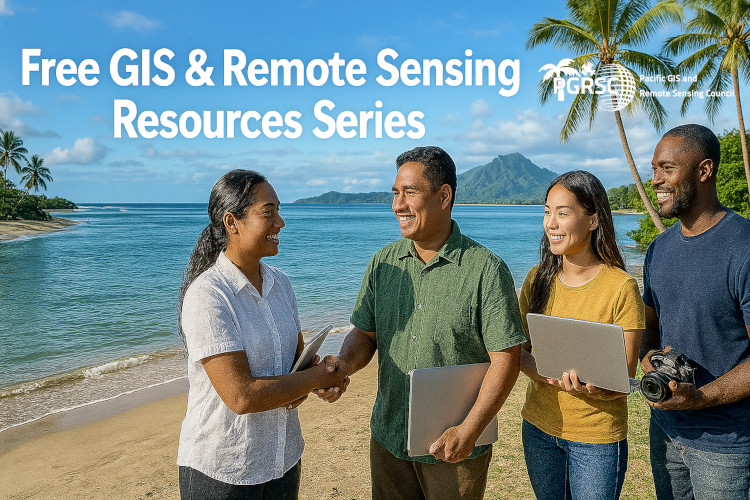On behalf of the Pacific GIS and Remote Sensing Council (PGRSC), we welcome you to Week 10 of our series to promote free GIS and remote sensing resources (webinars, instructional videos, technical manuals, e-books, etc.) to increase capacity, awareness, and skill development for the Pacific Islands geospatial community. Last week, we introduced the National Oceanic and Atmospheric Administration (NOAA) National Centers for Environmental Information (NCEI) Global Historical Climatology Network (GHCN) dataset – a free high spatial resolution global weather and climate dataset that contains daily temperature and precipitation summaries. This week we will explore Spatial Thoughts’ free self paced online course and tutorial on how to use the powerful Google Earth Engine – Google’s cloud-based geospatial platform that enables users to visualize and analyse satellite imagery. Week 10: Are you interested in learning how to use Google Earth Engine to rapidly access information from spatial data collections and data cubes? Spatial Thoughts has a free self paced online course and tutorial on how to do this and more with their End-to-End Google Earth Engine Course.
Google Earth Engine (GEE) is an extensive (multi-petabyte) catalog of satellite imagery and geospatial datasets that allows users to analyse data across the globe. Researchers and academics (professors and students) can use GEE to detect change over time, visualize trends, calculate statistics, and process satellite imagery with only a few lines of code. Spatial Thoughts End-to-End Google Earth Engine Course provides excellent coverage of the GEE platform beginning with the basics and then moving to more advanced analyses.
Spatial Thoughts End-to-End Google Earth Engine Course can be found at:
Information on Google Earth Engine can be found here:
https://earthengine.google.com
We hope that these materials are beneficial to you. Please let us know if you have a free GIS or remote sensing resource that you would like to promote as well so others can learn from them.

